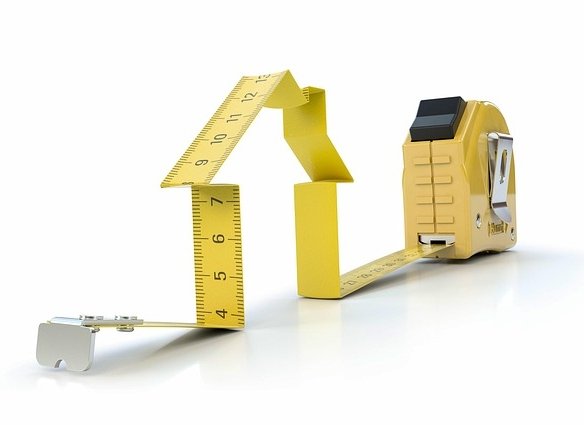In recent years, the real estate industry has witnessed a significant shift towards sustainability. As concerns about climate change and environmental impact continue to grow, more homebuyers and investors are seeking properties that prioritize eco-friendly and sustainable practices.
Embracing Green Building Standards
One of the key aspects driving this shift is the increasing emphasis on green building standards. From energy-efficient appliances to eco-friendly construction materials, sustainable real estate practices aim to reduce carbon footprints and promote a healthier living environment.
- Focus on energy-efficient appliances
- Use of eco-friendly construction materials
- Reduce carbon footprints for healthier living
Beyond the environmental benefits, sustainable real estate practices offer a range of advantages for homeowners and investors. Energy-efficient homes often result in lower utility bills, while properties built with sustainable materials may have higher resale values in the long run.

The Role of Technology
Technology plays a crucial role in advancing sustainable real estate practices. Smart home systems, solar panels, and energy monitoring devices are just a few examples of tech innovations that contribute to creating more sustainable living spaces.
Investing in the Future
As the demand for sustainable properties continues to rise, investing in sustainable real estate is not just a trend but a smart financial decision. Whether individuals are looking to buy a green home or incorporate sustainable features into their property, embracing eco-friendly practices can benefit both the planet and their wallet.

Benefits for Homeowners and Investors
Beyond the environmental benefits, sustainable real estate practices offer a range of advantages for homeowners and investors. Energy-efficient homes often result in lower utility bills, while properties built with sustainable materials may have higher resale values in the long run.
- Lower utility bills with energy-efficient homes
- Higher resale values with sustainable materials
- Financial advantages of sustainable properties
Utilization of Solar Panels
One of the most prominent technological advancements in sustainable real estate is the utilization of solar panels. Solar energy systems harness the power of the sun to generate electricity, reducing reliance on traditional energy sources and lowering carbon emissions. Homeowners who invest in solar panels not only contribute to a cleaner environment but also benefit from long-term cost savings on electricity bills.

Monitoring Energy Consumption for Sustainability
Monitoring energy consumption is essential for sustainable living practices. Technological solutions, such as energy monitoring devices and smart meters, provide real-time data on energy usage, allowing homeowners to identify inefficiencies and make informed decisions to reduce their carbon footprint. By tracking and analyzing energy consumption patterns, individuals can take proactive steps towards creating more sustainable and energy-efficient homes.
Overall, the integration of smart home systems, utilization of solar panel generated energy, and monitoring energy consumption are pivotal in advancing sustainable real estate practices. Technology continues to drive innovation in the real estate industry, offering homeowners and investors the opportunity to embrace eco-friendly solutions that benefit both the environment and their finances.
Investing in the Future
The real estate industry has experienced a notable shift towards sustainability in recent years, responding to the increasing concerns about climate change and environmental impact. This shift has been driven by a rising demand for properties that prioritize eco-friendly and sustainable practices.
Central to the movement towards sustainable real estate practices is the growing emphasis on green building standards. These standards encompass various elements, ranging from energy-efficient appliances to the use of eco-friendly construction materials. The primary goal of sustainable real estate practices is to minimize carbon footprints and foster healthier living environments.
As the demand for sustainable properties continues to surge, investing in sustainable real estate is evolving from a passing trend to a sound financial decision. Whether individuals are in the market for a green home or seeking to incorporate sustainable features into their properties, adopting eco-friendly practices can yield benefits both for the environment and their financial well-being.
This proactive approach aligns with the broader mission of creating greener communities and fostering a more sustainable world for future generations.
Conclusion
The rise of sustainable real estate practices signifies a positive transformation towards a more environmentally conscious and energy-efficient future. By giving emphasis to sustainability within the real estate sector, it paves the way for the creation of greener communities, reduction of carbon emissions, and the promotion of a more sustainable world for future generations.
By embracing green building standards and incorporating eco-friendly practices, the real estate industry is contributing towards a healthier living environment and a more sustainable planet. This shift not only benefits the environment but also offers tangible advantages to homeowners and investors, such as lower utility bills and potentially higher property resale values.
Technology acts as a catalyst in driving sustainable real estate practices forward. Innovations like smart home systems, solar panels, and energy monitoring devices play a vital role in creating sustainable living spaces that align with environmentally conscious goals.
Investing in sustainable real estate is not merely a fleeting trend but a strategic financial decision. The increasing demand for eco-friendly properties underscores the importance of integrating sustainable features into both new constructions and existing properties. This proactive approach not only benefits the planet but also yields long-term financial rewards.
In conclusion, the shift towards sustainable real estate practices reflects a broader societal commitment to environmental stewardship and eco-conscious living. It sets the stage for a future where sustainability is at the forefront of real estate decision-making, leading to a more eco-friendly and resilient world for all.




